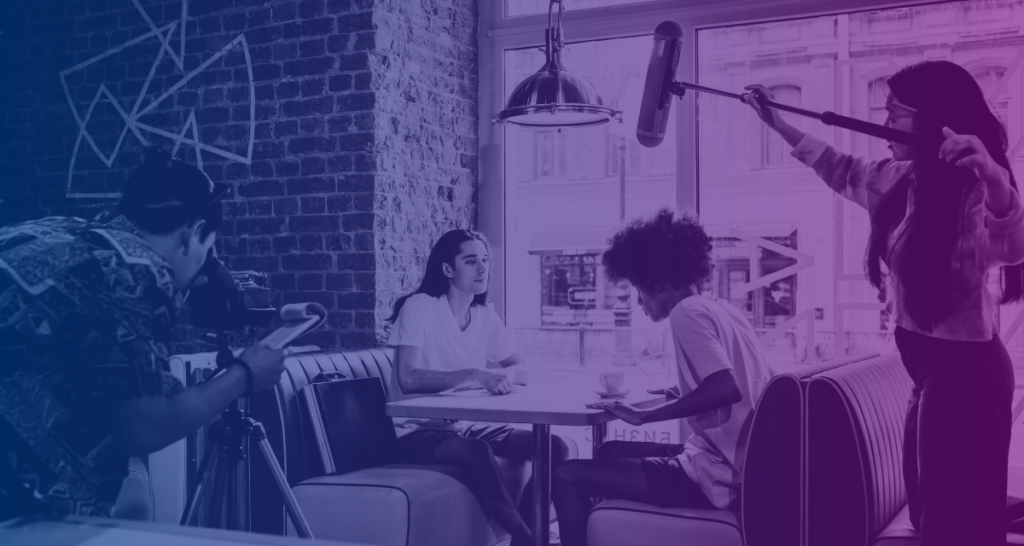
The International Entertainment Buyers Association’s annual conference represents billions of dollars in deals for the live events and touring industry. The conference also provides deep insights into the business through a number of panels and breakout sessions.
This year we were proud to see our own Todd Dyer, CAPS Payroll VP of Sales for Venues, Music Tours & Festivals, speak to the issues facing the industry on one of IEBA’s panels. He was joined by co-panelists Ann Jackson, Director of HR at Oak View Group; and Elizabeth Porter, President of Entertainment Health Services.
CAPS Payroll also helped expand access to the conference by presenting the IEBA Digital Pass, which made live panels and events accessible virtually for a wider array of participants to join in and learn.
Returning to the People Business: Back to Work covered important challenges and solutions that have had a profound impact on the ability for music tours and live events to recover and thrive in a post-pandemic world and get people back on the payroll.
Pandemic protocols have been a particular challenge among management and crew members, and the panel concluded that it is important to listen to employees to see what works and what doesn’t. They find it is also important for employees to have patience as management negotiates the challenges of social distancing, vaccine and testing mandates. Patience was stressed for both sides when organizations try using remote and hybrid models for offices, as well as a safety-first mindset for folks that work on the ground at venues and events.
There have been ongoing staffing shortages and a possible loss of institutional knowledge, which Dyer finds is best remedied using new strategies and technology. In his role providing payroll services to the live events industry, he’s seen an evolution in onboarding crew members.
“Make it easy for people to apply, interview and onboard – do it remotely, do it over video chat. Offer better benefits. Make things appear to be a fringe benefit.”
To preserve institutional knowledge, he stressed the importance of bringing the best employees back in the fold and on the payroll again. He recommends taking a “personal approach” with employees.
“Invite them back personally,” said Dyer. “Ask what they want to see from a safety perspective and a benefits perspective.” He also says it’s important to follow through, to “then show [employees] that they were heard. Make them feel respected and appreciated.”
Encouraging stage artists to return to the road has been a challenge, as has hiring crews for music tours. Bolstering the live events payroll is taking longer than usual. Due to difficult experiences on the road in the past that led to burnout, many crew members and artists are shifting gears, some are even changing careers.
Porter sees this as an opportunity to use mental health techniques to encourage artists and technicians to ground themselves in the present. She attributes a lot of the pressures on tour to a lack of perspective, and a feeling that an individual has lost control. Porter recommends working to “switch that perspective, [which] moves us away from fear and pressure, and gives us control.”
Dyer agreed and went further to say how important it is for managers to check on individuals in the workplace to see how they’re doing.
“One-on-one engagement is pretty powerful,” he said.
All the panelists found that the rehiring process is an opportunity to bring diversity and inclusion to the forefront. Jackson believes the industry needs to recruit with intention, with an embedded strategy of diversity and inclusion – which, she acknowledged, isn’t always the easiest path.
“You might hire somebody new to the industry, [that] doesn’t have the connections that you’d like, so it might take a little time,” she said. “That’s the inclusion part of it.”
Dyer finds that filling stage crew positions with a mandate for diversity can be done through professional organizations. He has personally found success helping live events payroll clients build relationships with these organizations. He has successfully referred clients seeking to diversify their crews to the Roadies of Color United.
The panelists all agree, with the right tools and mindset, working through this difficult moment for live events can be an opportunity to make meaningful change for the mental health of artists and crew members, the preservation of institutional knowledge and the increase of diversity in the live entertainment industry overall.
—
International Entertainment Buyers Association (IEBA) is a not-for-profit trade organization for live entertainment industry professionals. Founded in 1970, IEBA through its annual conference provide networking opportunities and professional development to its members and by showcasing current and diverse entertainment options.
